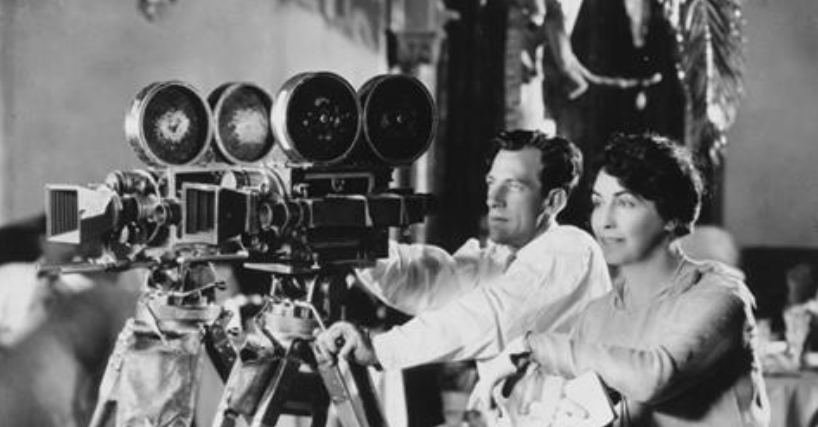Anthology Film Archives Series Celebrates Female Filmmakers
The Anthology Film Archive has started a new series called “Woman With a Movie Camera” to showcase female directors.
September 22, 2016
We may finally be seeing a female revolution in the blockbuster film scene in the next few years. Recent announcements have revealed that Patty Jenkins is directing the much-anticipated “Wonder Woman,” and Disney has recruited Ava DuVernay to direct a big-budget adaptation of Madeleine L’Engle’s classic novel “Wrinkle in Time.”
This idea, though, is a bit of a deceptive one. As it turns out, much like a lot of great industries, many of film’s pioneers were women. Without their vision and artistic drive, the concept of film as we know it would probably not exist. Unfortunately, while film as an art became more mainstream, these creators were pushed to the margins and their vital contributions were written over.
Anthology Film Archive’s latest series, “Woman With a Movie Camera: Female Film Directors Before 1950,” hopes to reintroduce these incredible stories to audiences. Through Sept. 25, the organization is hosting a film festival featuring over 20 films by female artists from the 1900s-1930s.
One of the series’ biggest gems is “Adventures of Prince Achmed,” the animated magnum opus by Lotto Reiniger. Although it predates Disney’s “Snow White and the Seven Dwarves” by more than a decade, it has never gotten to celebrate its place as the first feature-length animated film. Telling an Arabian-Nights-style adventure of magic, demons and sword battles, Lotto began working on the film when she was just 23. While the story is the engaging, arc-style typical of the fantasy adventure genre, the selling point is the jaw-dropping animation, created through shadow-like cutouts. If you have even a passing interest in animation, you owe it to yourself to see the gorgeous world and characters created with nothing but scissors and paper.
The series also features “The Drunken Mattress,” directed by Alice Guy-Blache and Romeo Bosetti, which might be one of the funniest shorts ever made. Centered around a drunkard taking shelter inside a mattress, the entire short is seven minutes of damn near perfect silent, absurdist slapstick comedy.
In fact, Guy-Blache was one of the most prominent filmmakers in the series. She has been credited as one of the first narrative filmmakers, so it’s no wonder the series features a wonderful short documentary about her life. It celebrates her as the do-it-all Wonder Woman of early film, and also features the bittersweet moments she endured as she was pushed out of the industry.
I could continue to elaborate on the extraordinary films or their revolutionary creators — how the restoration of “Shoes” reveals a poignant and beautifully shot tale of urban poverty, or how “Merrily We Go to Hell” shows how these women filmmakers were more than ready to make the jump to “the talkies.” But the biggest takeaway from the series is that a beautiful art form wouldn’t exist without radical and committed women diving head first into an exciting new medium, and how, with the exception of a few dedicated efforts like this series, we’ve tragically erased them from history.
As women are becoming more prominent in various industries — especially the artistic ones — there are naysayers who are under the perception that the diversifying of these mediums is abnormal, arguing that the current status quo of men dominating the industry is how things have always been. They feel that things like film, the tech field and video games were male-dominated from their earliest days. This series demonstratively proves that those assumptions are false. In fact, women were on the ground floor of the industry and were largely pushed out only when it became commercialized, creating a mainstream perception that they were never there in the first place. The gross historical revisionism that undercuts the important and revolutionary contributions of those who pushed film boundaries is an egregious crime, and hopefully one that can now be fixed.
“Woman With a Movie Camera: Female Film Directors Before 1950” will be running at Anthology Film Archives at 32 Second Ave. through Sept. 28.
Email Carter Glace at [email protected]















































































































































